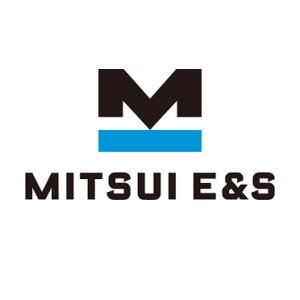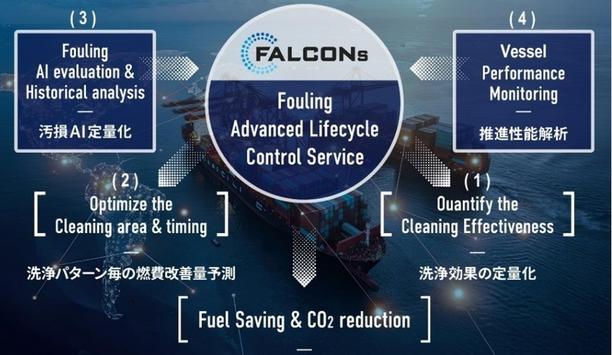Mitsui E&S Machinery, Ltd. - Experts & Thought Leaders
Latest Mitsui E&S Machinery, Ltd. news & announcements
ClassNK has granted its Innovation Endorsement for Products & Solutions to the biofouling control service ‘FALCONs’ developed by MITSUI E&S Co., Ltd. In order to promote the spread and development of innovative technologies, ClassNK has offered Innovation Endorsement for Products & Solutions. ClassNK supports the deployment of products and services through third-party certification for equipment and software technology with innovative functions. The detailed information is available on the following page of ClassNK website. AI-powered quantitative evaluation Product name: FALCONs Scope of Certification: Quantification of fuel saving and CO2 reduction, specifically by hull cleaning Patternisation of differences in fuel reduction effects of cleaning variations Tracking and predicting the progress of biofouling through AI-powered quantitative evaluation Propulsion Performance Analysis using only engine data and operational data without external disturbances
Wärtsilä Gas Solutions, part of technology group Wärtsilä, has been contracted to supply the cargo handling and fuel gas supply systems for six newbuild medium-sized gas carrier (MGC) vessels, which again strengthens the company's market-pioneering position in this sector. The new vessels are built at the Jiangsu Yangzi-Mitsui (YAMIC) Shipbuilding yard in China for a Japanese shipowner. The order was booked by Wärtsilä in Q3 2024. Wärtsilä’s cargo handling The ships will transport and operate with liquefied petroleum gas (LPG). The Wärtsilä solutions are designed to ensure the ships’ safe and efficient operation with LPG cargo and fuel. “We have worked closely with the YAMIC yard earlier, and we are pleased to continue this good relationship. This order is an important endorsement of the strong position that Wärtsilä’s cargo handling and fuel gas supply systems have established with this category of vessels,” commented Barry Yang, Sales Manager, Wärtsilä Gas Solutions, China. The YAMIC yard is a joint venture between Yangzijiang Shipbuilding Group and Mitsui E&S Shipbuilding. The Wärtsilä equipment is scheduled for delivery to the yard commencing in April 2025.
ClassNK has issued an Approval in Principle (AiP) for a design concept of the hydrogen-fueled engine compatible 5,000KL oil tanker with an electric propulsion system developed by UYENO TRANSTECH LTD., YANMAR POWER TECHNOLOGY CO., LTD., Mitsui E&S Shipbuilding Co., Ltd. This is the world’s first AiP certification for the design of an oil tanker using liquefied hydrogen as a fuel. The ship was designed as part of the ‘Development of Large-scale Hydrogen-fueled Domestic Tanker and Demonstration of Zero-Emission Ships’ project by the Nippon Foundation. Further consideration of the project ClassNK carried out a review of a design concept of the ship based on its rules including part GF of its ‘Rules and Guidance for the Survey and Construction of Steel Ships’ incorporating the IGF Code, Part D of ‘Guidelines for Ships Using Alternative Fuels; Guidelines for Ships Using Hydrogen as Fuel (Edition 3.0.0)’, and ‘Guidelines for Fuel Cell Power Systems On Board Ships (Second Edition).’ Upon confirming they comply with the prescribed requirements, ClassNK issued the AiP. This is the first AiP issued through the review based on Part D of ‘Guidelines for Ships Using Alternative Fuels’, released in May 2024. ClassNK will contribute to the further consideration of the project from the perspective of safety evaluation and will strive to support the decarbonisation of shipping.






